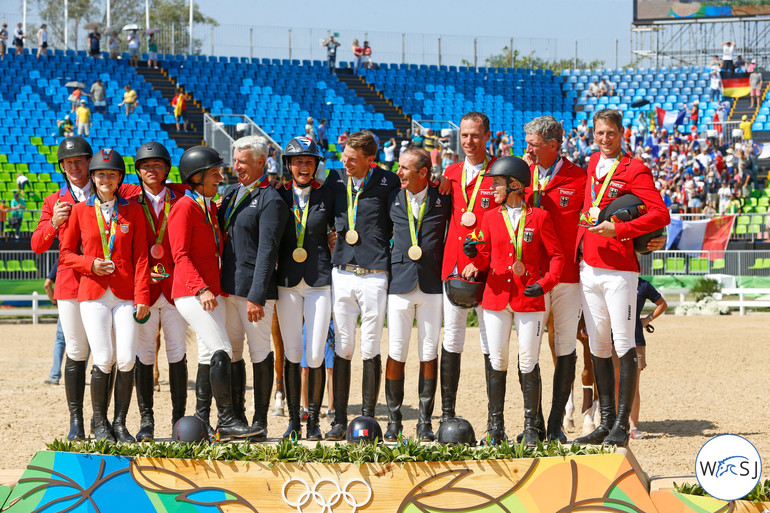Olympic formats were the key topic at the FEI General Assembly session in the Japanese capital this afternoon ahead of tomorrow’s crucial vote on the proposals that will be submitted to the IOC on the formats for the three Olympic equestrian disciplines at the Tokyo 2020 Olympic Games. The format for the Paralympic Games in Tokyo were also up for discussion.
Close to 300 delegates, representing 76 of the FEI’s 134 National Federations, engaged in the final debate to conclude a two-year consultation process about proposed changes to the three disciplines designed to increase universality, one of the key requirements under Olympic Agenda 2020. A further 31 National Federations will be voting by proxy, increasing the number of votes to 107.
The key proposals for change across the three Olympic disciplines – jumping, dressage and eventing – and para-equestrian dressage at the Paralympics are to have three athletes per team. The drop score, which previously allowed for a team’s worst score to be discarded, would be removed under the new proposals. The role of the reserve combination will be even more important and will be a key element in ensuring horse welfare.
These proposals will all be voted on together during tomorrow’s General Assembly, with the proposed discipline specific changes and the Paralympic revisions to be voted on separately.
Delegates at today’s session were given a final chance to debate the issues and opinions were voiced both for and against the proposals for change.
Ulf Helgstrand, President of the Danish National Federation, spoke strongly in favour of the new proposals. “We want excitement and more flags, and we have to make our sport more understandable. Which other sport can have a medal with an athlete that’s been disqualified? We will have much more excitement if one of the top countries or riders fails. This will give us more excitement and more flags.”
Natallia Kalesnikava, Executive Director of the Equestrian Federation of Belarus, received resounding applause for her comment. “We fully support this proposal. It gives a great opportunity for our country that’s been developing for the past 20 years to go to the Olympic Games. As soon as a country has the opportunity to participate in the Olympics, it has the support of its Government and sponsors, the chance to promote the sport and attract more young people. With this proposal you increase the number of countries to possibly 50 that would have the chance to raise their flag at the Olympic Games.”
German National Federation Secretary General Soenke Lauterbach spoke against, but made it very clear that Germany will respect the democratic process. “We understand the desire to get more universality in the Olympic and Paralympic Games, but it has to be balanced with the core principles of our sport, that we have top athletes, top level sport and in line with horse welfare requirements. We do not feel that with three per team we have the right balance of these three principles and that is why we will vote against tomorrow, but we will accept and work with whatever decision is made.”
The FEI President Ingmar De Vos provided details of the timeline for implementation of the Olympic formats prior to Tokyo 2020:
February 2017 – FEI proposals will go to the IOC Executive Board
May 2017 – IOC Programme Commission will make recommendations to the IOC Executive Board
July 2017 – IOC Executive Board meeting will decide on events and the quota November 2017 – FEI General Assembly in Montevideo (URU) will finalise the proposal for qualification procedures (quota distribution and eligibility)
Speaking after today’s session, the FEI President said: “We are a sport with 134 National Federations, and it’s correct that not all of them compete at elite level, but the development our sport has seen over the last decades as well as the recommendations of Olympic Agenda 2020 oblige us to focus on an increase in the number of participating nations within the existing quota. It is of course our role to get more National Federations to compete at the top level and to offer them an avenue for development. The decision is now in the hands of our National Federations and whatever way the vote goes tomorrow, we will make it a success.”
Source: Press release from FEI // Picture © Jenny Abrahamsson









